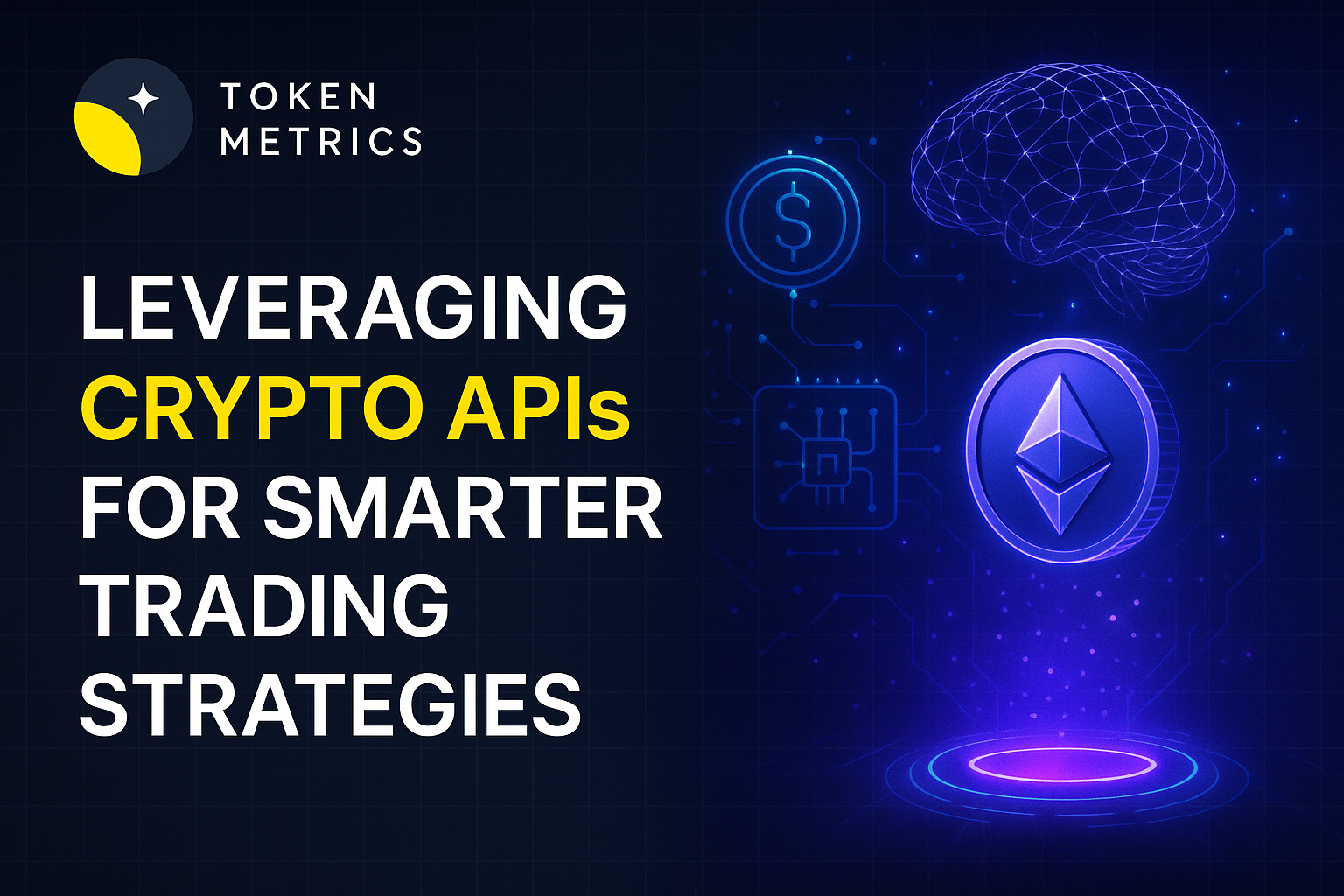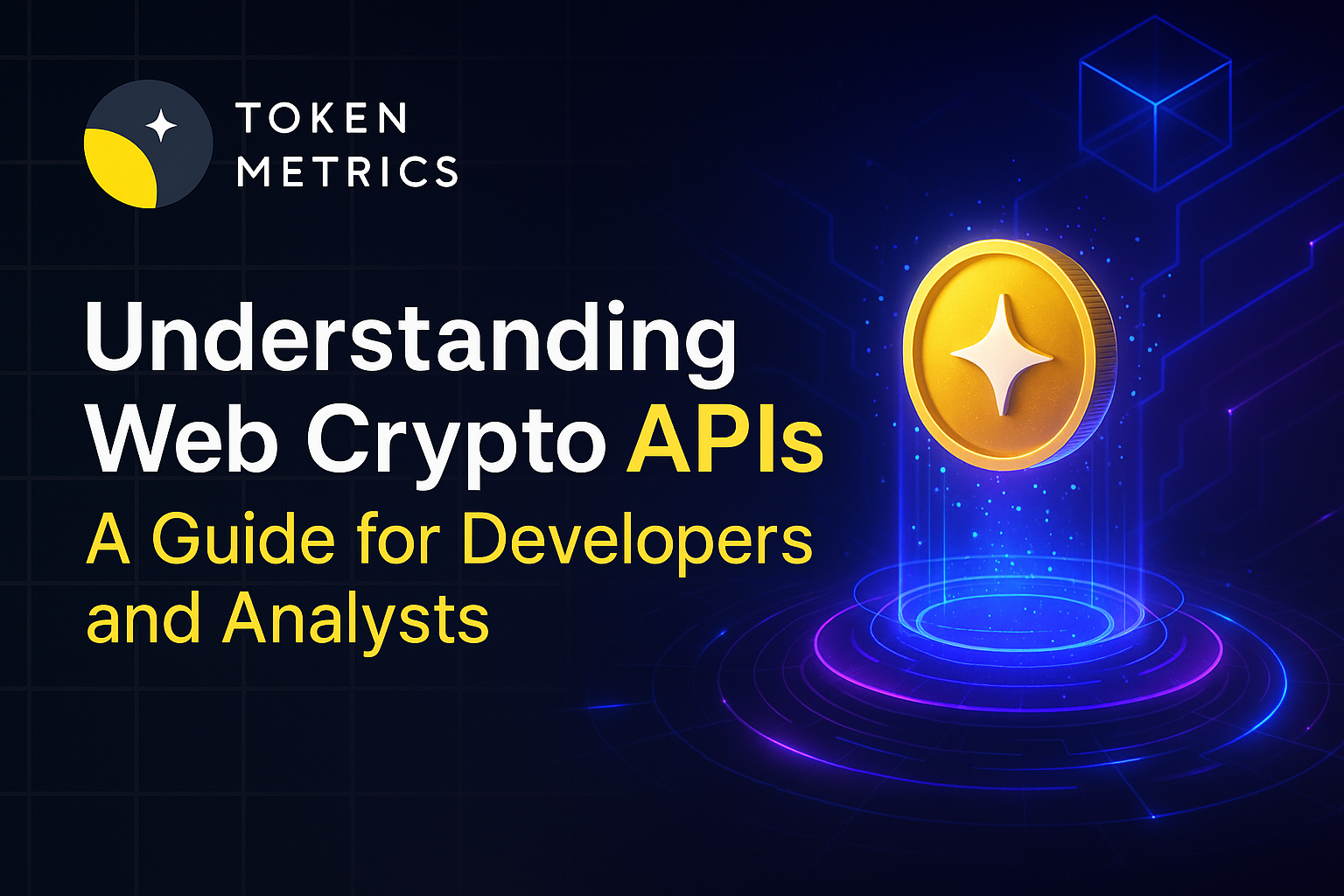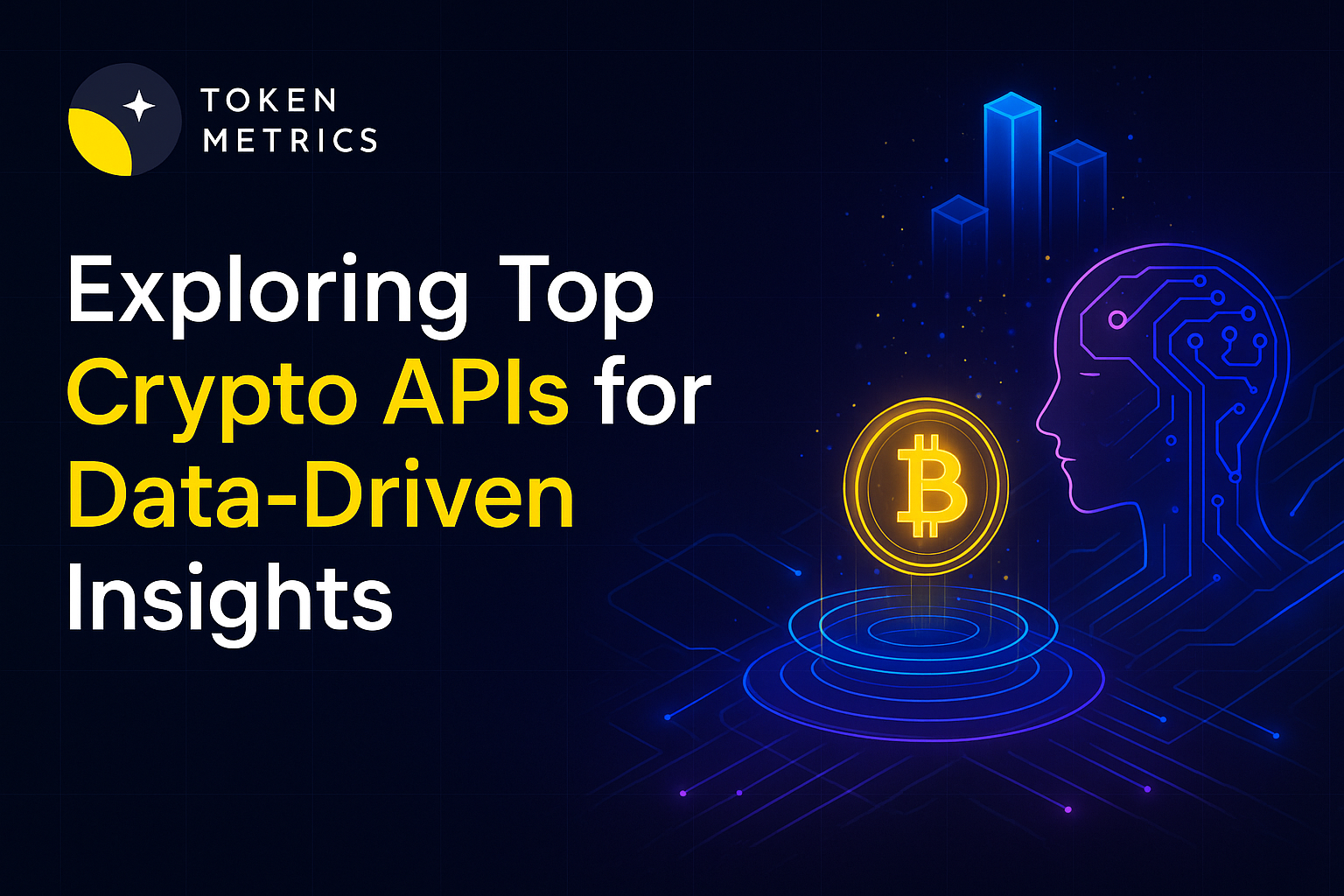Build the Future of Crypto Trading: Integrating Token Metrics with LangChain for Smarter Crypto Decisions

The rise of AI in crypto trading has opened new frontiers, and Token Metrics is leading the charge by enabling developers to build intelligent trading agents using its powerful API. The latest innovation? A seamless integration with LangChain – a popular framework for building context-aware agents using large language models (LLMs). In this blog post, we’ll break down how this integration works, what it enables, and why it represents a game-changing leap in automated crypto analysis.
What is LangChain?
LangChain is an open-source framework that helps developers build applications powered by large language models like Gemini, Claude, and OpenAI. It enables developers to build a wide range of advanced AI solutions, including:
- Conversational agents
- Retrieval-based question answering
- Tool-using AI agents
- Autonomous decision-making bots
By providing a flexible structure, LangChain makes it easy to integrate LLMs with real-world data sources and external tools, empowering your application to both reason and take action.
What is the Token Metrics API?
The Token Metrics API is a rich data layer for crypto investors, analysts, and builders. It provides real-time and historical data across:
- AI-powered Trader and Investor Grades
- Daily/Hourly OHLCV metrics
- Bullish/Bearish AI signals
- Quantitative indicators
- Curated Crypto Indices
With over 80 data points per token and robust filtering, the API makes it easy to identify profitable tokens, spot market trends, and build intelligent trading strategies.
Why Combine LangChain and Token Metrics?
Combining LangChain with Token Metrics lets you build AI-powered crypto agents that deliver market analysis and actionable insights. These agents can:
- Analyze crypto prices, trends, and sentiment using AI-driven methods
- Apply predefined strategies or custom logic for automated decision making
- Generates clear, human-readable insights and trading signals
- Identify and highlight tokens with strong profit potential
This integration equips your crypto applications with intelligent, data-driven capabilities to support smarter trading and research.
Getting Started: Building the Agent
The integration process begins with cloning a GitHub repository (public upon video release), which includes everything needed to run a Token Metrics x LangChain demo agent. After installing the dependencies and opening the codebase in a code editor, you’ll find a fully documented README that walks you through the setup.
Step 1: Install Dependencies
Navigate to the project directory and install the required packages using:

Step 2: Configure Environment Variables
Before spinning up the agent, add your Token Metrics API key and your LLM API key (Openai, gemini, etc..) to the .env file. These credentials authorize the agent to access both Token Metrics and your chosen LLM.

Step 3: Define and Run the Agent
The agent logic is explained directly in the README and starter code sample, making it easy to follow and customize. You’ll find clear instructions and code snippets that guide you through setting up the agent’s capabilities.
The agent supports two main modes:
- Simple Agent: A straightforward agent that answers user questions using Token Metrics tools. It’s ideal for quick queries and basic crypto research tasks.
- Advanced Agent: A more powerful agent capable of reasoning through complex tasks, chaining together multiple tools, and providing deeper analysis. This agent can handle multi-step queries and deliver more comprehensive insights.
Powered by LangChain’s ReAct (Reasoning + Acting) framework, your agent can:
- Access a suite of Token Metrics tools for crypto analysis, including price data, trading signals, grades, and sentiment
- Apply predefined strategies or custom logic for automated decision-making
- Generate clear, human-readable insights and trading signals
- Filter and highlight tokens based on objective, data-driven criteria
With comprehensive documentation and step-by-step guidance in the README, you can quickly build, customize, and deploy your own intelligent crypto research assistant—no separate agent.py file required.
A Real-World Example: Finding Winning Tokens
Here’s how the agent works in practice:
- It queries tokens with a valid Trader Grade
- Filters tokens with Bullish AI signals
- Compares Trading Signal ROI vs Holding ROI
- Filters out tokens that aren’t outperforming with active trading
In the test case, it identifies BANANAS S31 as a top candidate:
- High trader grade
- Bullish signal
- Strong Trading Signal ROI (better than holding)
At the end of its analysis, the bot outputs a summary of:
- Overall market sentiment
- Top token opportunities
- Macro-level recommendations
In this case, while BANANAS S31 stood out, the overall market leaned neutral with a slight long-term bearish bias, a useful snapshot for any trader.
Switching to the Advanced Agent
LangChain’s flexibility allows the same bot to switch into an interactive chatbot by attaching memory to the agent. Users can now type in:
“What are the top 3 tokens to watch today?”
“Is the market bullish or bearish?”
“Give me DeFi tokens with bullish signals.”
The agent can dynamically select and chain together specialized crypto analysis tools in response to your questions. This means the agent doesn’t just answer queries with static information but it actively pulls the latest Token Metrics data, applies AI-driven analytics, and synthesizes insights using multiple sources and methods.
As a result, you will get clear, context-aware responses about market trends, trading signals, token performance, and more. All grounded by the Token Metrics APIs
Key Benefits of This Integration
Here’s why this LangChain x Token Metrics setup is a big deal:
✅ AI That Acts
LangChain agents go beyond conversation—they can autonomously scan and analyze crypto markets using a suite of Token Metrics tools.
✅ Actionable Data
Token Metrics transforms complex market data into actionable insights, empowering the agent to support smarter trading and investment decisions.
✅ Current Market Analysis
Every time the agent runs, it draws on up-to-date Token Metrics data, ensuring responses reflect the latest market conditions.
✅ Fully Customizable
Tailor the agent to your needs, filter by DeFi tokens, set custom ROI thresholds, or incorporate additional data sources like social sentiment. The open-source codebase makes it easy to adapt the agent for any use case
What Can You Build With This?
This framework provides a versatile foundation for a wide range of crypto applications, including:
- Personal trading assistants
- Crypto Telegram bots
- LLM-integrated crypto dashboards
- Quant strategy testers
- AI-powered newsletters and daily briefs
By combining a powerful API with a reasoning engine, you unlock a new frontier in crypto intelligence.
Final Thoughts
The integration of Token Metrics with LangChain shows what’s possible when deep crypto analytics meets autonomous reasoning. Instead of flipping between dashboards, you can build an agent that does the research for you, surfaces profitable tokens, and delivers daily alpha—automatically.
Whether you’re a developer, trader, or AI enthusiast, this setup gives you a robust foundation to experiment, build, and push the future of AI trading forward.
Try It Yourself
Once the repository is public, you’ll be able to:
- Clone it from GitHub
- Add your API keys
- Customize your agent
- Start generating automated crypto insights today
Click here to view the demo.
AI agents are the future of trading—and with Token Metrics and LangChain, the future is already here.
Create Your Free Token Metrics Account

.png)




%201.svg)
%201.svg)


%201.svg)










.svg)




.png)